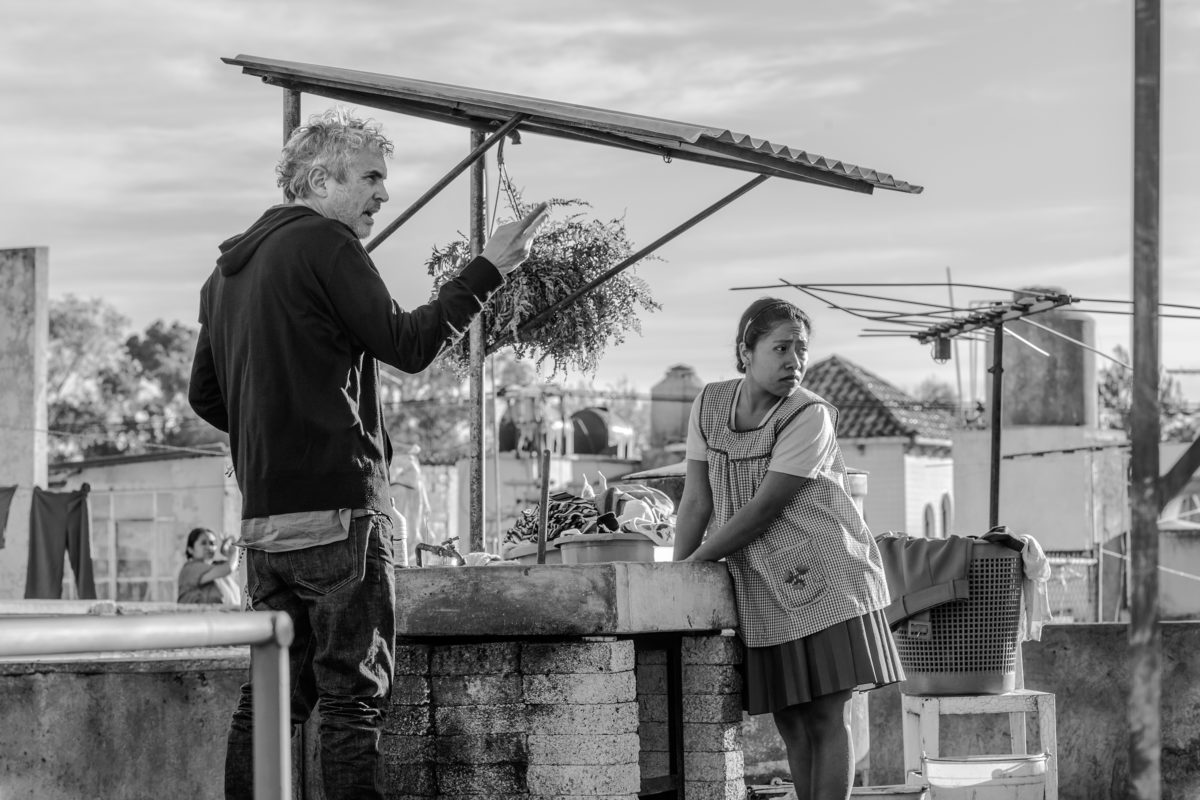Yesterday I saw Alfonso Cuarón’s Roma on the big screen (where it should be seen). This movie drew me in so deeply in that when it ended I struggled to get myself back to reality. In it, I recognized the time, the people, and the place, even if I’ve never been to Mexico City. I was stunned by its majestic pace, its storytelling, and the power of the black and white cinematography.
But even more, I was struck by how it exposed the complex dynamic of love and power without ever mentioning it.
Class and power inequality are most often depicted in movies and shows as violence and abuse against the least powerful. There are moments of explicit violence in Rome, for example when the protagonists witness the horror and confusion of the Corpus Christi massacre, when 120 students were killed by the military during a demonstration.
But the exercise of power in this movie is shown in a much subtler way, and much more devastating because so pervasive and “normal.” In most of the movie, power dynamics are shown through the daily interactions of people who love each other: the place that each person is allowed to occupy, the division of labor, who gives orders and who obeys, who asks questions and who answers them, who attacks and threatens and who listens in silence, who abandons and who is left alone, and who endures the suffering.

Most of all, class and gender dynamics work through the politics of attention: who knows what is happening, moment by moment? who has the job to ensure that those around them are fed, happy, and safe?
The person on top of the food chain is Antonio, the father who runs away, and he is also the one who pays the least attention and feels the least responsibility for the people around him. Sofia, the mother, is left to take care of the house and the children and pays the bills. But it’s the maid Cleo who incessantly notices and repairs, feeds and consoles, and feels the most responsibility for the wellbeing and safety of each member of the family (including the dog).
Power and powerlessness, love and care mingle and get entangled. Love connects without eliminating social inequalities. In fact, love becomes a contributing factor to the inequality, because the price that each person is asked to pay for love is still weighted by their social status.
To me, Roma’s subtle representation of how power and privilege play out in intimate relationships is more devastating than the show of raw violence against the poor and the powerless. Because when we watch good, caring people exercising their privilege, we cannot absolve ourselves from the responsibility, reassure ourselves that we are innocent and do not play a part in the power game; we are revealed as the “good” people who still hurt and exploit, loudly demand attention and care, and feel entitled to love.
[Note: I wrote this post because I was upset after reading the very bad, lazy, and sloppy review in the New Yorker. Be warned that this review describes the movie from the first to the last scene, so don’t read it if you plan to watch the movie. In fact, just don’t read it.
A much better review is that on the New York Times by Manohla Dargis]

December 9, 2018
Hi,
thank you for your review, I’ve been planning it for a long time now that I’m gonna see this movie but somehow it hasn’t happened yet but after reading your article I’m in the mood to watch it, so thanks again 🙂
xo
Oliv